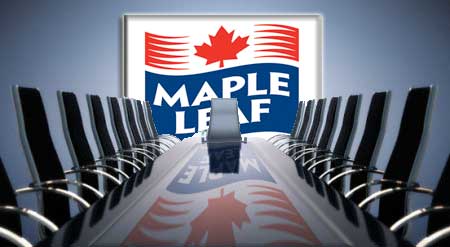“Today’s leaders are expected to lead change with agility, and to develop high-performing teams,” said Covey. “It is trust that turns a group into a team. Trust is the ultimate collaboration tool and the linchpin of a collaborative partnership.”
In addition, a panel of leading food safety experts shared their thoughts about what can be learned from the industry’s non-competitive approach in creating Listeria Control Best Practices and workshops and how these kinds of efforts can create value and trust for stakeholders. “We all have the same goal and that’s public health — to make sure we’re putting out safe, quality, wholesome food to the public,” said Sharon Beals, Chief Food Safety Officer at CTI Foods. “I see a lot more collaboration and openness in the industry … together we’re smarter and that’s how we improve.”
“The non-competitive nature of the event — processors teaching processors … it creates a tremendous learning environment,” said Jeremiah Johnson, Corporate Manager of Regulatory Compliance, Food Safety and Sanitation at Hormel Foods. “It’s about impacting public health and us saying we can come together to minimize the impact of salmonella in products. And we’re starting to do these things right now with NAMI’s support.”
A second panel discussed the value of food safety audits in encouraging transparency and continuous improvement. Panelists agreed that how a company responds to a finding during an audit is more important than the audit itself. “We don’t live in a perfect world,” said Andrew Clarke, senior director of quality assurance at Loblaw Companies Limited, adding that companies must respond in an appropriate manner. Panelists also noted that findings on audits can strengthen food safety if these findings are viewed with an eye towards continuous improvement. David Rasmussen, director of quality at The Kraft Heinz Company said, “We want to avoid situations where looking good replaces being good.”
In the closing panel, Randy Huffman, Ph.D., Chief Food Safety and Sustainability Officer at Maple Leaf Foods; Julie Anna Potts, President and CEO of NAMI; Jim Snee, CEO of Hormel Foods, and Michael McCain, Executive Chair of the Board and CEO of Maple Leaf Foods, discussed the Protein PACT, its ambitious visions and targets for 2030 and the increasing demand among consumers for transparency.
Snee welcomed the increasing transparency that the Protein PACT will bring to the meat industry and the opportunities for trust building. “We often hear ‘big food is bad.’ We want to be GOOD big food.” McCain agreed: “Transparency is a central and defining attribute of who we are. It’s one of the secret sauces to trust-building.”
Next year’s Maple Leaf Foods Food Safety Symposium date will be announced soon. For information on food safety at Maple Leaf Foods, visit: https://www.mapleleaffoods.com/our-commitments/safe-food/












